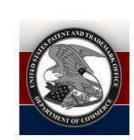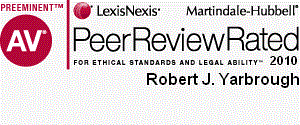Newsletter Issue 56 - October 2013
In this issue:
Are contracts protected by copyright?
Quick patent examination
International Internet
Ask Dr. Copyright
Dear Doc:
Today I heard that companies can claim that their contracts are
copyrighted, and prevent others from publishing them or copying
them. Please, Doc, tell me this can't be true! My company just cuts
and pastes agreements we find on the Internet, so we don't have to
hire lawyers to write new contracts.
Signed,
Cheapskate T. Client
Dear Cheap:
You rotten person! You think you can just steal some lawyer's work,
paste it together, and call it your own! How DARE YOU!?!
***
Ok...the "Doc" has just taken a deep breath, counted to ten, and
calmed WAY DOWN...
So, you heard right. Recently, Apple Inc.
threatened a web site because it published the iTunes Radio
contract that Apple offered to independent music labels. Apple
claimed that publishing the contract on the site was an infringement
of copyright, and demanded that the contract be taken down.
Grudgingly, the website operator complied, and the issue seems to
have gone away.
Under the copyright law (17
U.S.C. §101 et seq.) anything written by a lawyer (or other life
form) is automatically protected from the moment it becomes "fixed"
(written down). Contracts are no different from novels, poems,
songs, paintings or any other "work" protected under the law. Unless
you have a right to use a protected work, or you are able to
successfully argue that your use is "fair" under §106 (and that is
very difficult to do), then any use you make of a protected work
will be deemed an infringement. Infringement can lead to damage
awards far above what you might save - in some cases, up to
$150,000.
Thus, in a victory for upstanding lawyers everywhere, it is not
legal for you to copy, cut and paste your own contracts, even if you
stand very little chance of getting caught doing it. But (and there
is always a "but") there is a much better reason for you not to play
lawyer. You see, contracts are written for different reasons, under
the laws of different states and countries, and at different times.
As the business objectives, locations, and laws change, so, too,
should contractual terms and language. It may seem that you are
saving money, but even a small mistake in a contract could cost you
and your company many times what the attorney would have charged if
there is ever a dispute over the agreement.
This advice is not just hypothetical, either. The "Doc" has been
involved in do-it-yourself legal matters, and as a rule of thumb, he
can tell you that the cost to fix things is more than ten times the
cost to do it correctly in the first place (and no, he's not talking
about that bathroom remodel he tried a few years back!)
Attorneys are always keeping up with changes in the law, and
revising contract language to protect their clients.
Need a legal agreement? Ask the attorneys at LW&H -- they keep up
with the law and draft documents that even your Mom wouldn't mind
reading (if she was a really good Mom and quite bored one evening!)
Til next time,
The "Doc"
Options for Quick Patent Examination ...
Would you like a quick answer from the U.S. Patent and Trademark
Office on whether your invention is patentable? Are you willing to
pay for it? If your answer to both of these questions is 'yes,' then
you can obtain an office action from the PTO examiner in less than
five months.
You have two options:
a. You can ask for 'Accelerated Examination.' Accelerated
examination requires a petition fee ($70 for a 'small' entity and
$35 for a 'micro' entity) on top of the usual filing fees. The
applicant must file a 'pre-examination search and examination
support document' and accept limits on the number of claims. The
applicant also must agree to an examiner interview, which is a good
thing, prior to the first office action. The 'pre-examination search
and examination support document' generally demonstrates that a
comprehensive patent search was conducted and demonstrates how the
claims distinguish the prior art found in the search. The
'accelerated examination' option is attractive if you retained us to
perform a patent search for you (or would like to) and your
invention does not require a large number of claims.
b. Alternatively, you can pay for 'track one prioritized
examination.' No search or examination support document is required
and there are no limits on the number of claims. An examiner's
interview is not required prior to the first office action. The fees
are higher, however. The filing fee for 'track one' examination is
$2,000.00 for a 'small entity' and $1,000.00 for a 'micro' entity,
also on top of the usual filing fees. The 'track one' examination is
advantageous if your invention is complex and requires a large
number of claims or if we have not performed a patent search for
you. You must request either of these alternatives at the time that
you file your patent application.
If a quick decision on your patent application is consistent with
your business goals, we can obtain that quick decision for you.
The Internet Goes International
Just this past week, the Internet Corporation for Assigned Names
and Numbers (ICANN) announced new generic top-level domain (gTLD)
names that are not written in Latin characters.
They are شبكة, which is Arabic for "web/network"; онлайн, Russian
for "online"; сайт, Russian for "site"; and 游戏, Chinese for
"game(s)."
What does this mean? Here's what ICAAN
says:
...it signals the beginning of the largest-ever expansion of the Domain Name System (DNS); a change that promises to promote global innovation, competition and consumer choice. It means you will soon see the Internet grow from the 22 gTLDs that we have now (e.g., .COM, .BIZ, .ORG) to more than 1400 new possibilities.
According to ICANN, the new gTLD's will facilitate competition
and innovation and make the Internet more inclusive irrespective of
language or region. They provide "provide a huge opportunity to
increase engagement, commerce and connectivity and represent a bold
step forward in the globalization of the Internet."
The implementation of the new gTLD's is a two step process. The
first phase consists of a "Sunrise" period during which time
trademark holders can register second-level domains corresponding to
their trademarks. A secondary domain is the designator below the
first-level domain so if, for example, you have a domain called
"example.com", the first-level is the ".com" and the second level is
"example". The Sunrise period occurs before public release of the
domains and provides a period when a trademark owner can
pre-register their trademarks and protect themselves against
cyber-squatting. Registry operators - the people that sell the
domains - must provide a 30-day minimum Sunrise period. Following
the Sunrise period is the period of "General Availability" when
registrars make the new domains publicly available.
ICANN proposes to implement even more new gTLD's in the coming
months so if this is an issue that is of interest, you can follow
the developments at ICANN's web site.
PTO Fee Reductions Take Effect January 1, 2014
The PTO will reduce patent issue fees and the PCT (international
) filing fees effective January 1, 2014. If you are able to delay
payment of an issue fee or to delay filing a PCT application until
after January 1, then you can save money.
Many PTO fees depend on whether the application is owned by a 'large
entity,' a 'small entity' or a 'micro entity.' In general, a 'large
entity' has more than 500 employees. A 'small entity' has fewer than
500 employees.' A 'micro entity' is a small entity that has filed
fewer than 5 patent applications (not counting provisional and
international applications) and had a gross income of less than
$150,000 in the previous calendar year (actually, the gross income
must be less than three times the median income, but that currently
comes out to $150,000). The income requirements generally limit
micro entities to private individuals. A 'micro entity' also is
someone who makes his or her living at an institution of higher
learning. Does all this sound overcomplicated? Well, yes... but the
purpose of all that complication is to give a break to the little
guy.
The reduced fees are as follows:
Utility patent issue fee: For a small entity, the
issue fee after January 1 will drop from $890 to $480. For a micro
entity, the issue fee will drop from $445 to $240.
Design patent issue fee: For a small entity, the
design patent issue fee will be $280, down from $510. For a micro
entity, the design patent issue fee will be $140, down from $255.
Publication fee: The publication fee will drop from
$300 to zero.
PCT (international) filing fees: The cost to file
an international PCT application for small entities and micro
entities will drop substantially, making international filings more
attractive to small business. The major financial factor in
international patent protection comes when the application fees for
the individual foreign countries are due, generally 30 months after
the first U.S. filing. International filings also require annual
payments to the foreign countries each year, known as 'annuities.'
The costs to file in the individual foreign countries and the
annuities are not affected by the PTO fee reduction. International
patent protection still will be out of reach for most small
businesses and individual inventors.

